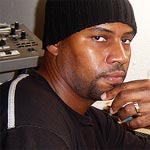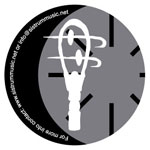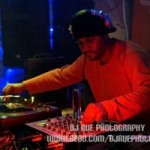 Patrice Scott hat Resident Advisor ein Interview gegeben. Irgendwie war das überfällig, oder?
Patrice Scott hat Resident Advisor ein Interview gegeben. Irgendwie war das überfällig, oder?
If you’ve had your eye on the new blood coming out of the Motor City’s electronic music scene over the last few years, then you’ll almost certainly have heard Patrice Scott’s name uttered more than a few times. But while fellow new faces such as Kyle Hall and Kris Wadsworth are still learning how to shave, Scott witnessed the first waves of Detroit house and techno, becoming known on the local DJ scene and holding down residencies in both his native city and just across the border in Toronto. It wasn’t until 2006, though, that he entered the world of recorded music, releasing the melodically rich deep house of the Atmospheric Emotions EP on his own Sistrum Recordings. And it’s been difficult to ignore him since.
Unlike many of his contemporaries, Scott has shied away from making Sistrum Recordings a Detroit-specific imprint, picking up producers from Italy (Ksoul and Ra.H), Ireland (Leonid), Germany (XDB) and Los Angeles (Mike Edge) to further the label’s vision of deep house and techno. However, it’s Scott’s raw and emotionally charged cuts that manage to stand out from his impeccably selected roster, with tracks like „Raw Fusion“ and „Motions“ already becoming modern classics for Detroit aficionados worldwide. With DJ gigs all over Europe and a semi-regular slot at Fabric (including a main room set before Ricardo Villalobos and Raresh last weekend), Scott is slowly and deservedly rising through the ranks of the DJ elite.
There’s quite an emphasis on melody and musicality to your tracks. Did you ever have any musical training?
When I was younger I took some piano and guitar lessons, but I’m nowhere near a musician, so most of it I picked up along the way. My parents used to play music around the house all the time though—Marvin Gaye, Earth Wind and Fire, Stevie Wonder, Roy Ayers—stuff like that.
What was your introduction to electronic music?The first time that I was turned on to electronic music was when I was about 13 or 14, when I went to this party down in some backyard down the street from where my grandmother used to live. It was a local Detroit group who called themselves Sharevari, and the DJs at the party were a local Detroit crew called Direct Drive. That was my first real experience with… I don’t know if it was really considered electronic music back then; I think it was so-called „progressive“ music. A lot of the music that they were playing—and this was around 1984—it was music with instruments and things like that, but it was still dance music. Music that was generally derivative of disco, but they called it „progressive dance music.“
From that point on, I had already wanted to be a DJ, but I was DJing more regular music. I say regular music but it was more popular music—things that were being played on the radio like Kraftwerk, Afrika Bambaataa, Soul Sonic Force and things like that. The Sharevari party definitely changed me and got me into playing a different kind of music, the more progressive style of stuff.
What really set me off was a friend who gave me some mix tapes from Chicago. His cousin would send him recordings of the shows on WGCI and WBMX. Of course, I’d be listening to Charles Johnson—The Electrifying Mojo—every night at 10 PM as well. I was DJing somewhat up until the mid ’90s, and from that point on I was in and out of the DJing game. I went to college, I was doing other things, and then in about 1997 I think, I got my hands on some equipment and I started to make tracks but I didn’t really go too far with it because I’d just started a job and I was working long hours, so it kind of kept me from going further with the production thing…



